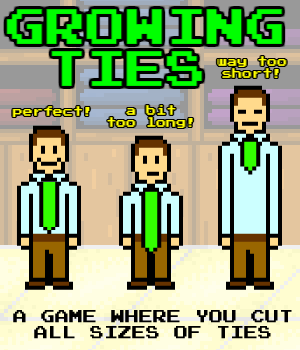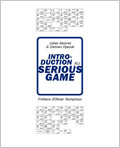For the Ludoscience team, it's very important to play if you want to practice Ludology.
Having read a few articles mentioning the idea that Pokémon GO could promote the health of its users through the walking activity it elicits, we wanted to form our own opinion by playing the title. We took the game with us on vacation, in the countryside, in the mountains and in the city.
This month-long test also gave us the opportunity to make a few observations in the field, which we'd like to share with you.
Before that, let's start by describing the game.
Pokémon GO description
Pokémon GO was released in France on July 24, 2016. This title is offered by Niantic and Pokemon Company. Nintendo and Google are also involved in the project. Pokémon GO is aimed at Smartphones and tablets running Android or IOS environments. The aim is to collect a set of Pokémon, either by catching them, incubating them or evolving them. At the same time, these Pokemon can be used to conquer arenas. To do this, each player must choose a team - blue, red or yellow - and organize battles between Pokémon. To help players on their various quests, they need to acquire items such as Pokeballs to capture virtual creatures, incense or lures to attract them, and reminders or potions to heal them.
To play, you need to be physically mobile. The playing field is the whole world, or almost: some countries, such as North Korea, or villages like Bressolles, have banned the game on their territory. You'll need to find your way around using a map powered by Google Map. There, players can identify where to collect the various items they need via Pokéstop. These are symbolized by blue turnstiles on the game map. They are located on points of interest (playgrounds, parks...) or tourist attractions (fountains, statues, monuments...). Battling arenas are indicated by columns of yellow, red or blue, depending on the team in charge. Pokémon spots are not indicated on the game map. A radar warns players when they are approaching a virtual creature. But it's up to the player to flush it out by exploring the area. When a new Pokémon is caught, it is added to the player's Pokédex. In other words, a record of all existing Pokémon. Once the Pokédex has been filled to 151 squares, the player can consider the game complete. At present, only a handful of players worldwide have managed to complete the Pokédex. However, this situation is temporary, as it is highly likely that new Pokémon will appear in future updates...
Our playgrounds
When it was released, we downloaded the game and set off to test it in the countryside, the mountains and the city.
For the countryside, we chose the village of Montrésor and the small town of Loches in the Indre et Loire region. For the mountains, we went to the Dévoluy and Gapençais regions of the Hautes-Alpes. Finally, for the city, we chose Lille and Lyon as our playgrounds.
Our gaming devices and versions
We used two smartphones: an Apple Iphone 6 running IOS 9.3.2 and a Sony Xperia Aqua M4 running Android 5.0.
On these two devices, we downloaded the successive Pokémon GO updates that appeared on these two platforms between July 24 and August 20, 2016. The latest version of the game during this period being 0.33.0.
Let's now take a look at what we observed in the field.
In the countryside
For Montrésor, a small village of 300 souls, we identified five Pokéstops and one arena. This is an exception in the area, where the average number of Pokéstops in neighboring villages is one at best, and often none at all. Some villages, like Beaumont-village 4 km from Montrésor, offer nothing at all, and mobile Internet coverage is non-existent. This makes it very difficult to play Pokémon GO.
In Montrésor, the vast majority of Pokémon identified are of two kinds: Rattata (a Pokémon inspired by the Rat) and Roucool (a dove-type Pokémon). Few other types of Pokémon appear. Other Pokémon may appear at random every hour, but the range remains fairly limited. In the end, around ten species were identified during the week we spent in Montrésor. The village of Montrésor being quite small, the spots where Pokémon can appear are quickly identified. Once they've been identified, there's no real room for haphazard exploration to track down the virtual creatures. The way to play Pokémon GO in a village like Montrésor is quickly to take the same walk several times a day to activate the different Pokestops, and to position yourself at the different spots to collect different Pokémon at certain times. Once you have enough potions and reminders, the idea is to take the village arena, which is located at the Town Hall. Here, you may come across a local or a tourist trying to enter the arena. It's easy enough to strike up a conversation, as the members of the village know each other or are in a vacation mood.
While we happily walk to hunt Pokémon and collect items at the various Pokestops several times a day, every car journey is an opportunity to play Pokémon GO. New behaviors are emerging: the praise of slowness. Pokémon eggs hatch after 2, 5 or 10 km, depending on the situation. These eggs can give birth to Pokémon that never appear in the village. Every motorized movement is therefore used to progress in this quest. However, the game detects if the movement speed is less than 18 Km/h to validate the clutching of eggs. In this context, whenever possible, in the deserted lanes of the village, we ride at walking pace and understand why most players now adopt the bicycle to play Pokémon GO. When a vehicle appears in our rear-view mirrors and we have to accelerate, we get a little annoyed. When we see a Pokéstop or Pokémon on our radars, we try to pull over whenever possible to take the opportunity to pick them up. We've found that other drivers do the same. So Pokémon GO seems to value slowness, something to ponder in a society where everything is speeding up. Of course, this should not obscure the accident-prone aspect of such behavior. Version 0.33.0 of the game detects significant acceleration and warns players not to play while driving... This option can be improved, as it is triggered even when jogging or even walking normally, due to GPS location errors. However, the idea of preventing such risky behavior has been identified by the game's developers and is indeed a pertinent warning.
In Montrésor's situation, it's clear that playing Pokemon GO is rapidly becoming rather limited. There are two options for progressing in the game: either ask Niantic to add new Pokéstop in the village, or move to a slightly larger town. In the first case, we collected GPS coordinates and photographed some 30 locations that could be Pokéstop sites. Montrésor is indeed a tourist village with many historical points that justify such Pokéstop. Unfortunately, when we tried to submit our elements to Niantic, their site was no longer accepting any new Pokéstop proposals. We hope this is only temporary, as it seems clear that the playability of Pokémon GO is inextricably linked to the number of Pokéstop available. The latter will undoubtedly attract a larger and more varied number of Pokémon. With this in mind, to continue the game, we decided to go to Loches, a small town of six thousand inhabitants located around twenty kilometers from Montrésor.
The next day, we decided to head back to Loches, equipped with back-up batteries. To optimize this autonomy, we also take great care to charge our devices to 100%, and every car journey is an opportunity to connect the devices to the cigar lighter to search for them for a while. In addition to turning off the sound of smartphones, energy-hungry actions such as triggering a Pokémon evolution that displays an energy-guzzling animation are reserved for the home, where it's possible to plug in to the mains. Play in the field is dedicated solely to Pokémon hunting and item collection. For arena battles, which also require a lot of energy, it's ideal to be able to do so from your vehicle, with smartphones plugged into the mains whenever possible. Finally, when remaining energy is very low, devices are put on standby to activate them only at key moments: arrival near a Pokéstop or a presumed Pokémon spot. So playing Pokémon GO requires you to think about how to manage energy and make choices about what seems essential to progress in the game.
In the mountains
After Montrésor, we set off for the mountains. We arrive in the 1500-meter-high resort of Super Dévoluy, where the idea is to go hiking. The resort has just one Pokéstop and one arena. Three Pokémon spots have been identified. Internet connection and GPS localization by the game are rather random. Despite these constraints, the idea is to see if it's possible to find Pokémon in the wilderness of the mountains. Perhaps rare Pokémon can be found there? To our astonishment, the trails followed in the mountains are mostly empty of Pokémon. In this context, the strategy adopted is to hatch Pokémon eggs by capitalizing on hours of walking. But walking for hours in the mountains doesn't mean swallowing kilometers. What's more, the application sometimes needs to be restarted to update data or because it malfunctions. But in the mountains, when Internet coverage is fickle, such a restart can prove fatal. If it's impossible to restart, it's no longer even possible to take into account the distances covered. After a few days in the mountains, we have to face the facts: the best way to find Pokémon in the Hautes-Alpes is to go to the towns in the region: Veynes or Gap. There, as in Loches, we come across many Pokéstop, arenas and Pokémon. What strikes us is that, outside these towns, the places where Pokémon spots are concentrated are supermarkets. There, in the space of a quarter of an hour, it's possible to find 3 to 4 different Pokémon in different aisles or in the mall parking lot. So, our impression is that the idea of Pokémon GO, which invites people to move around, comes up against technical limits on the one hand, that of Internet coverage on the one hand, but certainly economic ones on the other. It is highly likely that shops and other economic venues (hotels, restaurants...) will be increasingly inclined to offer Pokémon spots to players, no doubt in return for financial transactions. Transactions that have already taken place between Niantic and Mc Donalds, for example. The fast-food chain could thus have a type of Pokémon that could only be found in its vicinity. This suggests that this phenomenon is likely to develop with other players. This makes us wonder why we weren't able to offer our Montrésor Pokéstop on the Niantic website. Is this a temporary technical problem, or is it for economic reasons? Japan has contacted Niantic to promote local tourism in disaster areas via Pokémon GO... This must have involved some kind of financial transaction. Why should Montrésor now be free?
Despite the lack of Pokémon on our hiking trails, we've managed to find a few that offer a few Pokémon. They are located close to the Devoluy resorts. In particular, a trail from Joue du Loup to Super Dévoluy offers half a dozen different Pokémon over the first three to four hundred meters. It's a real pleasure to play the game in this idyllic landscape. But then the question arises: isn't it a shame to keep your eyes glued to your smartphone screen when nature is at its most beautiful? Critics may reply that the game offers an augmented reality option that mixes landscapes and Pokémon. However, this is only triggered during creature capture and arena battles. What's more, the augmented reality mode is very power-hungry... In any case, after a few minutes walking in the mountains, the Pokémon radar becomes mute again. So it's best to concentrate on incubating Pokémon eggs. This can be done by carrying the device in your backpack, which allows you to enjoy the scenery and avoid twisting your ankles by taking your eyes off the path. However, you'll need to disable the phone's automatic sleep mode to take advantage of this, and remember to interact with the smartphone every half-hour to check that it's still active and that kilometers are being taken into account by the game. On many occasions, the device failed to geolocate us and our journeys were not taken into account. What a disappointment in such cases!
On the trails, we also came across one or two Pokéstop. These are located on panoramic viewpoints set up for tourists, always close to a resort or village. Finding them, however, is a special treat when you've been walking for a while. The items provided by these virtual turnstiles are identical to any other Pokéstop. In our view, the notion of physical effort should be rewarded with more or rarer items. On the other hand, it seemed to us that these Pokéstop offered a high probability of encountering less common Pokémon such as Pikachu. But this remains to be confirmed, as we didn't return to these locations on several occasions to find out whether or not this was the case. This puts a limit on the amount of effort required to reach such isolated Pokéstop, compared to the plethora of turnstiles found in cities where walking on flat ground is much easier...
Finally, a fun fact: for those looking to hold arenas for as long as possible, we were delighted to find that three days after leaving the Dévoluy region, we were still holding our positions on the arena in the village of St Etienne en Dévoluy, compared with one or two hours in a small town like Loches. Aiming for remote locations can be a strategic move if you want to enjoy the benefits of the game's arenas for longer. It should be noted that the winnings mentioned here are virtual gold coins and stardust, which can be used to purchase items or upgrades in the Pokémon GO virtual store, and to evolve Pokémon, respectively.
In town
It's now time to head for Lyon, where we're scheduled for a two-day tour of the city. The car journey is used to hunt Pokémon. So, as passengers, as we pass through villages or small towns we activate the game to spot any Pokémon. It's like an urban safari, with the radar displaying a succession of virtual creatures appearing and disappearing as we move along the city blocks. Occasionally, a Pokémon materializes on the game map. Pokéstop can also be activated by passing near them. As for arenas, it's amusing to note that it's sometimes possible to position one of your Pokémon when places are available. In any case, you have to be quick, because depending on your movement speed, the shooting window is relatively short. In this context, what a joy to find yourself blocked by a red light or stuck in traffic! These slowdowns give you more time to carry out such game actions. And if the speed is below 18 km/h, then it's also possible to accumulate kilometers to hatch eggs. So, instead of experiencing stops and slowdowns in a negative way, they become an opportunity to progress in the game. This is the first time we've found a beneficial aspect to traffic jams! It's amusing to note that some toll booths are teeming with Pokémon. While waiting to cross the barrier, it's possible to capture a few specimens. Is this intended to keep the kids waiting? In this context, perhaps it's not such a good idea to opt for the electronic toll collection system? In this case, the praise of slowness seems more appropriate. Similarly, taking a break at a freeway service area is now seen as a chance to hunt Pokémon and trigger a few Pokéstop. Stops are no longer seen as a waste of time on a journey, but become fun and therefore appreciated. Especially when rare Pokémon are found, as was the case for us. Conversely, getting out of a tollbooth or traffic jam is akin to having to put the game on standby. So it's with a certain regret that this sometimes happens.
Arriving in Lyon quickly puts this into perspective, as the number of arenas and pokéstop is now greater than ever. A very large city is a Pokémon GO player's paradise. As we decided to visit old Lyon, the number of Pokéstop per square metre reached new heights. We sometimes come across up to four Pokéstop per crossroads on pedestrian paths. Pokémon appear in abundance, including specimens that have never before appeared in the countryside or mountains. Added to this is the quality of the Internet connection. Even if GPS errors occur from time to time, progress in the game is enhanced. No need to worry if you have to relaunch the application.
Family members who take us on a tour of old Lyon help us discover the city's wonders and details. In return, some Pokéstop sometimes highlight details that our guides don't know about: like a mural, a small fountain or a coat of arms. While the game seems to uncover hidden details, it overlooks other elements that our guides list as must-sees. For example, figurines such as lions' heads on the facades of old houses are not indicated, whereas a commonplace city water pump is. In the end, it all seems quite subjective, and begs the question of who is ultimately entitled to decide what is most valuable from a cultural, historical and artistic point of view... In any case, it seems clear that Pokémon GO can be used to organize cultural rallies and educational outings. The idea seems to have already been put into practice. In Lille and Lyon, we came across several groups of children or adults supervised by animators who showed them around parks while hunting Pokémon. The parks now host gatherings of Pokémon players who can be easily identified by the fact that they are holding their smartphones to spot virtual creatures. Some know each other and chat, others come alone and wait. Players are of all ages. This confirms that video gaming is not a generational issue. These gatherings are undoubtedly an opportunity for some to get to know each other, even if the devices can be a barrier.
During the visit to old Lyon, an ethical problem also arose. Should the game be played in every location? When we entered Lyon Cathedral, for example, it seemed indecent to enter with our smartphone switched on to play Pokémon GO, even though Pokémon were all around the building. This raises the question of where the boundaries of the playground lie. Japan has asked for Pokémon spots to be removed from commemorative sites such as the one dedicated to Hiroshima. The flood of players coming to play became incompatible with such a place of remembrance. But is removing Pokémon enough? Shouldn't a dedicated message also be displayed to inform players? Indeed, when you're caught up in the challenge of this game, it's sometimes hard to get away from it... We experienced this first-hand in Lille, where there's a free zoo. Knowing that Pokémon could be found there, we entered the premises paying very little attention to the real animals. With our eyes glued to our smartphones, the only thing that mattered was catching the virtual creatures. Realizing this, we looked up and saw that other players were also roaming the grounds. It was a strange sensation that real animals were less important than fictitious creatures.
Similarly, for those accompanying Pokémon GO players, they can quickly become annoyed by players who lock themselves into their quests. Walking, stopping, asking to make detours to trigger pokéstop or flush out a specimen. This can be a real hassle for non-players who just want to go for a walk. So it may be better to organize such games between players, so that everyone is on the same wavelength. In this way, we see couples or groups playing side by side, collectively suggesting directions to be taken, submitting ideas for places to be reached or actions to be carried out. Some associations or companies offer to guide such groups of tourists around cities to strategic locations. Recently, the Museum of London regularly activates decoys on their pokéstop to attract visitors to the building. A whole business model seems to be created around the game.
In the evening, we noticed that it was possible to reach a Pokéstop from our hosts' house. Every 5 minutes, without having to leave the house, it can be triggered remotely. What's more, from the WC, the game seems to juggle two satellites to calculate our GPS position. This has the effect of moving our avatar at regular intervals between two Pokéstop that we can activate remotely. Occasionally, Pokémon are detected on the way and can be captured. Added to this is the fact that it also increments the number of kilometers traveled to hatch eggs. This raises the question of whether it wouldn't be simpler to leave the smartphone plugged into the toilet and let it run on its own? But apart from this funny situation, such a glitch is not without consequences. In particular, it calls into question the game's interest in walking. In the same vein, players have been known to use their robot vacuum cleaners to deposit their smartphones, thus taking advantage of their movements to hatch their Pokémon eggs more quickly... This is reminiscent of the Wii era, when some players quickly realized that they didn't need to move in front of the screen, and that sitting still with a few flicks of the wrist was enough to win.
Back in Lille, we discovered that, as in Lyon, there were a large number of Pokéstop and Pokémon to track down. Playing there is much easier than in the countryside or mountains.
If playing locations can be discriminating, we've also found that not all players are equal, depending on the type of device and operating system used: the Android version of the game we're using has several display problems. Pokéstop normally turn purple when they cannot be used. They turn blue when they can be activated. On Android, they always remain blue in all circumstances. But most annoyingly, the Android version of the game doesn't seem to identify Pokémon attracted by lures or incense, unlike the IOS version. This creates a certain frustration when rare Pokéman appear for some and not for others. Despite this discrepancy, which will no doubt be the subject of a software correction, we found Pokémon GO a pleasure to play.
Review
After almost a month's use of Pokémon GO, we can now conclude that the game has a definite appeal when it comes to walking. However, you need to be able to collect enough Pokéstop and Pokémon to ensure that the pleasure of playing outweighs the effort. In the mountains, we've never made the effort to walk a kilometer uphill just to activate a Pokéstop. This seemed excessive, even if such routes can be used to hatch eggs. On the other hand, walking around the village of Montrésor, which offers flat terrain to activate a few Pokéstop and hunt a Pokémon or two, was a more regular activity. But the risk of fatigue is undoubtedly greater than in a big city, where the game offers more possibilities in terms of Pokéstop to activate and Pokémon to capture. In fact, many of the comments posted on the game's website testify to the fact that most users living in the countryside are fed up with the few Pokémon they come across.
When it comes to moving around by car, it's clear that the need for slowness has been strongly emphasized in order to make progress in the game. While there's no doubt about the danger of mixing driving and video games, it's worth considering how to develop the desire of motorists to take breaks on freeways, and positively turn the stress of traffic jams on its head.
On a technical level, Pokémon GO makes you think about how best to manage your smartphone's energy and focus on certain parts of the gameplay accordingly. Perhaps this is something to bear in mind when developing other games in this vein. Pokémon GO also made us aware of the digital divide that exists in our territory, and the notion of white zones. How do you play this game in a village like Beaumont-Village, or in a high mountain village? City dwellers are clearly privileged, which also highlights the dimension of this game's business model: connecting Pokémon GO to commercial areas. The myth of finding Pokémon in the wild didn't really survive our test. At best, Pokémon can be found in the green spaces of major cities.
From an educational and cultural point of view, Pokémon GO can certainly be used as a playful mediator. This is reminiscent of the work of Professor Michitaka Hirose, who in 2004 invited children to collect virtual creatures in the Tokyo Science Museum. Children were given a tamagotchi-like device to hold in their hands. Called a “wallstone”, it guided children to various museum exhibits. When consulted, the wallstone reacted and unlocked a virtual creature. Like Pokémon, they could be collected. The game was won when they were all collected. The approach, developed by Professor Michitaka Hirose, is fully in line with a serious game experience, since here the educational and entertainment objectives are clearly combined. Pokémon GO now offers similar potential. It's just a question of ensuring that the game doesn't take precedence over the educational aspect. Indeed, in the case of the London museum, activating lures on Pokéstop to attract visitors is probably not enough. Once the Pokémon have been found, what's the point of the public staying? As with Lille Zoo, it's not certain that the public will pay much attention to the site either... We need to think about how to give the game an educational dimension.
From a sociological point of view, Pokémon GO also raises questions about our relationship with others in a society where screens seem to be increasingly interwoven between individuals. Can these screens help people to meet? Does the game facilitate exchanges between people who don't know each other? Or does it enclose them in a videogame bubble? In all likelihood, the answer to this question is plural and complex. It seems obvious that more research is needed to answer such questions.
In the meantime, we'd like to know whether Pokémon GO will be a temporary or lasting phenomenon. After all, most games tire eventually. But a game can also be revitalized by injecting new features at regular intervals to counteract this weariness. So it remains to be seen what the next few months will bring for Pokémon GO. In particular, we need to see whether the game can continue to stimulate users to exercise over the long term. This would be in the public interest in a society where a sedentary lifestyle is the order of the day. Whatever the case, we can already confirm that Pokémon GO is a game that will go down in videogame history for its popular success and the originality of its gameplay.
Leave a comment
| Category : Thoughts, | Keywords : Serious Game, Video game, Smartphone, Serious Gaming, Pokemon Go, Gameplay, Research,



 Français
Français English
English




